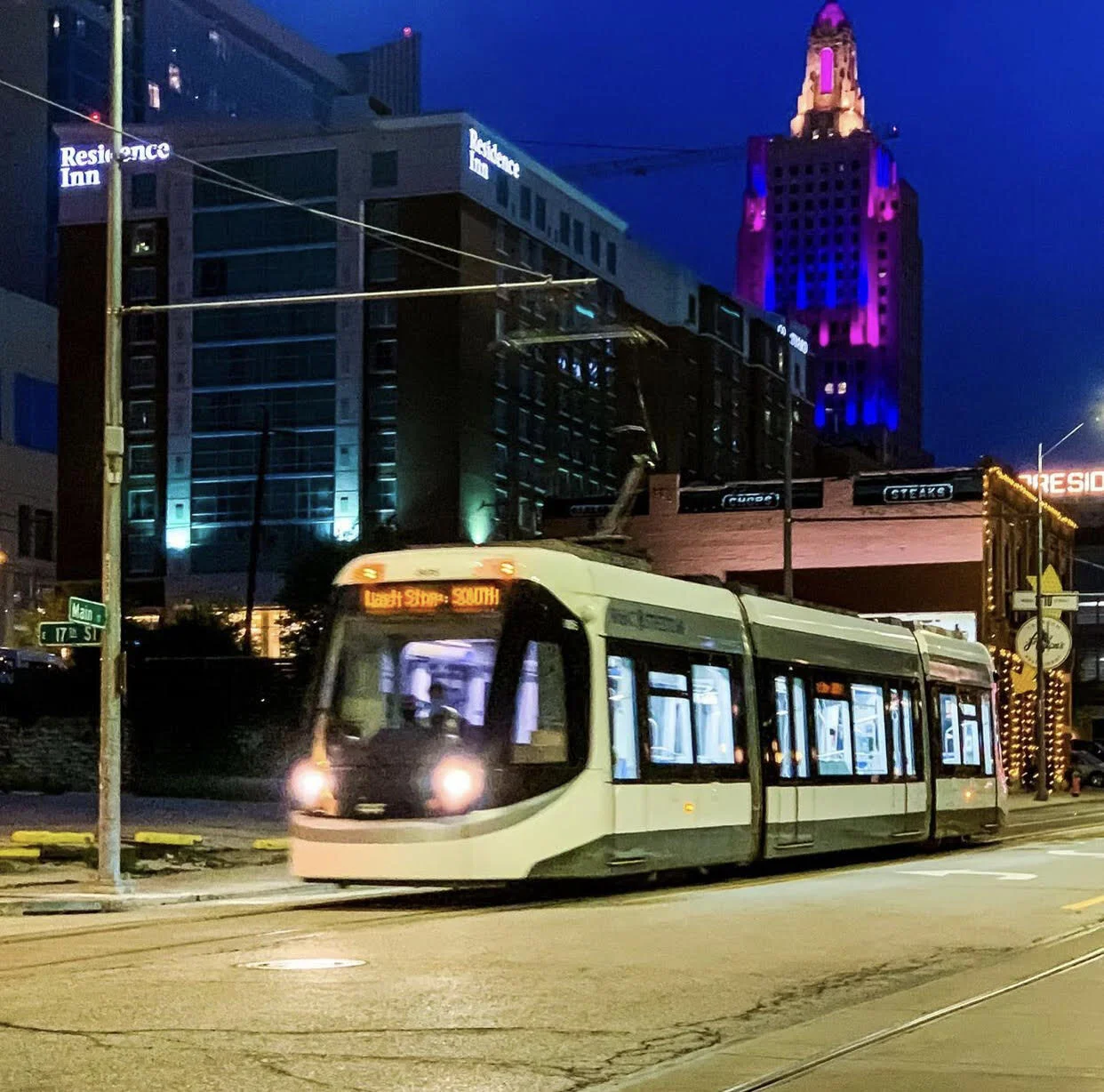Photo credit: KC Streetcar Authority
KC Streetcar celebrates five years, continues to thrive
KC Streetcar stays on track to success
Despite the economic challenges of the COVID pandemic, the KC Streetcar system continues to gain momentum and community support.
During this week’s KC Downtowners monthly webinar, Tom Gerend, executive director of the Kansas City Streetcar Authority (KCSA), discussed the current status of the KC Streetcar line as well as the plans for expansion.
“Decreased foot traffic in downtown Kansas City has impacted ridership, but not enthusiasm. Local neighborhoods are continuously requesting that the line extend into their area,” Gerend said.
The current extension projects include routes to the Country Club Plaza, the University of Missouri-Kansas City (UMKC) and the River Market.
“The Plaza stop is an exciting development. This extension will be a gateway connection linking the KC Streetcar to local and regional bus routes. The residents of the Mainline and Plaza areas will have increased accessibility as well,” Gerend said.
The ease of accessibility to these areas will be an added bonus for the students of UMKC. The campus stop will not only help bring foot traffic into other neighborhoods, but be an added an amenity for students.
The additional stops were requested, voted on, approved and funded by the districts that they will impact and are expected to be complete by late 2025.
At the other end of the Mainline, the KC Streetcar plans to expand to the River Market.
“The River Market is a Kansas City neighborhood that has essentially been on an island. This connection will raise the quality of life for residents in this neighborhood by offering better accessibility to and from the area,” said Gerend.
The $20 million project has received $14 million in federal funding and $6 million from local investors.
The current Mainline operates six cars; the expansion projects will allow that number to increase to twelve. The additional cars will require a larger maintenance facility, which is being planned alongside the expansion projects.
The success of the KC Streetcar is clear with public transportation ridership up 30 percent since it began operation, according to Gerend.
“While there is no way of quantifying the economic impact of the COVID pandemic until we are on the other side of it, the hope is that continuing to develop our city during this time will help us bounce back faster,” Gerend said.
In closing, Gerend was asked about further expansion north and south of the urban core.
“There are three legs to the stool. Before we can move forward with a project, we need to know there is technological feasibility, financial feasibility and community support. We are seeing a lot of community support north of the river. The feasibility still needs to be determined,” Gerend said.
Early discussions with North Kansas City have brought to light the possibility of future expansion across the Heart of America Bridge; however, data regarding the feasibility of the that project still needs to be collected.
“This season has brought with it many challenges, but development in downtown Kansas City is moving forward with a hopeful outlook. The KC Streetcar will serve as a valuable asset in recovery and continuing to grow our city,” Gerend said.
The expansion project team plans to seek local contractors via the KCMO procurement process.
Gerend was named the first executive director of the KCSA in June 2014. Since public opening of the streetcar system on May 6, 2016, the KC Streetcar system has carried over 8 million passenger trips, won numerous state and national awards and has been credited with stimulating over $3 billion in active economic development in downtown Kansas City.
In addition to overseeing KCSA’s financial, operations, maintenance and marketing programs, Gerend is helping to lead and advance the streetcar expansion efforts to the Missouri Riverfront and UMKC in partnership with the City of Kansas City, Missouri; the Kansas City Area Transportation Authority and PortKC.








